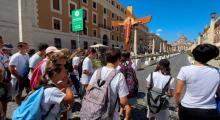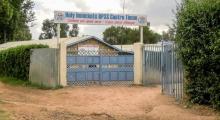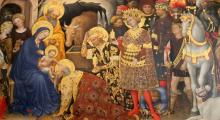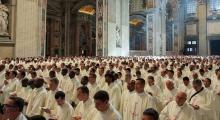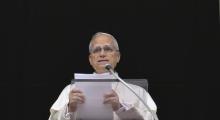Issued by the Catholic Center for Studies and Media - Jordan. Editor-in-chief Fr. Rif'at Bader - موقع أبونا abouna.org
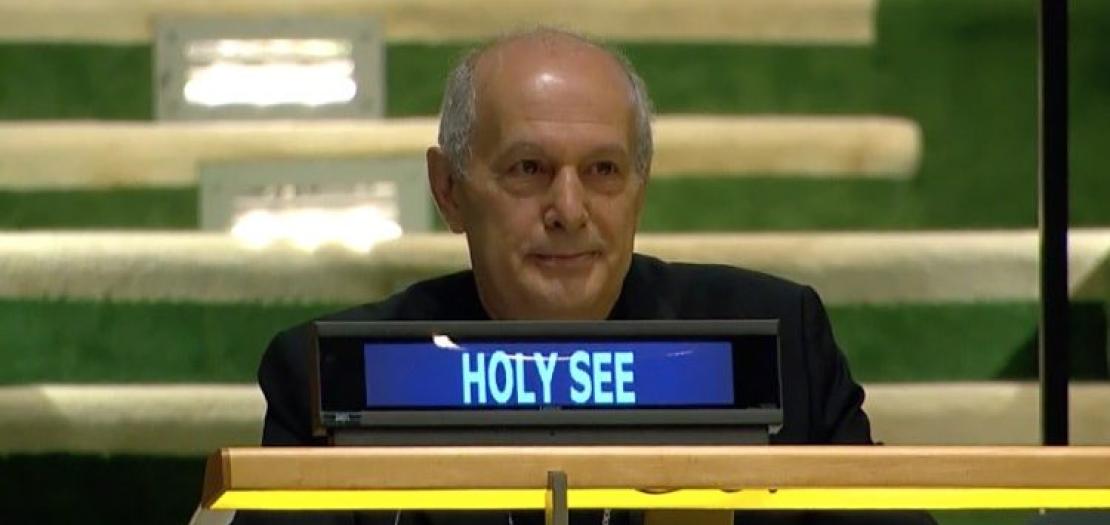
Archbishop Gabriele Caccia, Permanent Observer of the Holy See to the UN
Catholic teaching upholds the family as the fundamental unit of society, where not only love, responsibility, and faith are nurtured but also a reflection of God’s divine plan for humanity.
In a message delivered on February 12 at the United Nations 63rd session of the Commission for Social Development (CsocD63), Archbishop Gabriele Caccia, the Permanent Observer of the Holy See to the UN, highlighted that the family acts as a pillar of support and unity in the society.
The conference was held under the theme, ‘Strengthening solidarity, social inclusion and social cohesion to accelerate the delivery of the commitments of the Copenhagen Declaration on Social Development and Program of Action of the World Summit for Social Development as well as the implementation of the 2030 Agenda for Sustainable Development.’
“At the heart of each of these themes is the family,” said Archbishop Caccia. “The family is a “school of deeper humanity… and the first place where the values of love and fraternity, togetherness and sharing, concern and care for others are lived out and handed on.”
Archbishop Caccia noted that families play a crucial role in advocating for their members, especially those who may be overlooked or seen as a burden by society. They serve as a powerful example of solidarity and inclusion, ensuring that no one is left behind.
“As the fundamental group unit of society, the family is entitled to appropriate respect in its role from the community and the State,” he said. “The Holy See urges States to promote and respect family life and to foster better conditions for family formation.”
Social inclusion and investment in integral development
By ensuring that all individuals have access to opportunities, resources, and participation in social, economic, and political life, social inclusion fosters dignity and mutual respect and promotes holistic well-being of individuals and communities.
While addressing the participants at the UN’s headquarters in New York, the Permanent Observer of the Holy See said solidarity is only realized to the extent that it encompasses all members of the human family.
“Those living in poverty struggle to meet their basic needs, which in turn hinders their integral human development,” he said. “Those who are in vulnerable situations, such as the elderly, the unborn and persons with disabilities, are sometimes deliberately excluded in a “throwaway culture” that sees some people as disposable.”
Social inclusion, he added, is vital in order to invest in the integral development of all human beings for everyone to flourish.
“Effective policies to eradicate poverty are key, as are ensuring quality education for all and promoting a sense of shared responsibility for each other and for the community,” he said.
Social cohesion
Even though the world is currently interconnected because of technological advancements, Archbishop Caccia said it is “increasingly fragmented, due to polarization and loss of trust in both institutions and fellow citizens.”
“People must be able to participate in all spheres of society, as holders of both rights and duties,” he said. “Leaders and policymakers at all levels should actively involve civil society, academia, the private sector, and faith-based organizations in identifying and responding to problems, taking due account of historic and cultural contexts.”
The Archbishop concluded by underlining the principle of subsidiarity, which recognizes the values and roles of each level of society must be adhered to for social cohesion to be realized.
“Subsidiarity,” he said, “protects people from abuses by higher-level social authority and calls on these same authorities to help individuals and intermediate groups to fulfil their duties.



